
Copernical Team
EarthCARE launched to study role of clouds and aerosols in Earth's climate
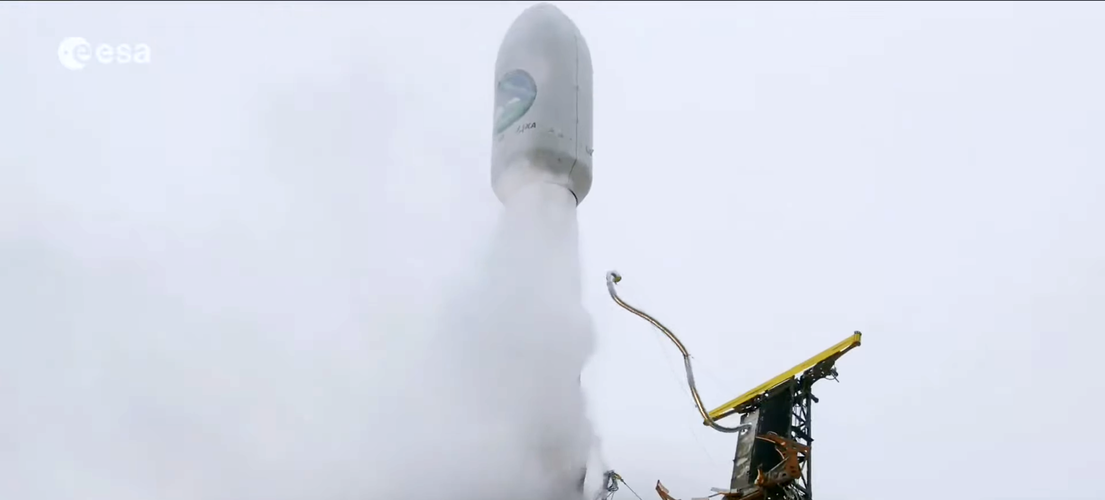
ESA’s EarthCARE satellite, poised to revolutionise our understanding of how clouds and aerosols affect our climate, has been launched. This extraordinary satellite embarked on its journey into space on 29 May at 00:20 CEST (28 May, 15:20 local time) aboard a Falcon 9 rocket from the Vandenberg Space Force Base in California, US.
What is Manhattanhenge and when can you see it?

Twice per year, New Yorkers and visitors are treated to a phenomenon known as Manhattanhenge, when the setting sun aligns with the Manhattan street grid and sinks below the horizon framed in a canyon of skyscrapers.
The event is a favorite of photographers and often brings people out onto sidewalks on spring and summer evenings to watch this unique sunset.
Manhattanhenge happens for the first time this year on May 28 at 8:13 p.m. and May 29 at 8:12 p.m., and will occur again on July 12 and 13.
Some background on the phenomenon:
WHERE DOES THE NAME MANHATTANHENGE COME FROM?
Astrophysicist Neil deGrasse Tyson coined the term in a 1997 article in the magazine Natural History. Tyson, the director of the Hayden Planetarium at New York's American Museum of Natural History, said he was inspired by a visit to Stonehenge as a teenager.
The future host of TV shows such as PBS' "Nova ScienceNow" was part of an expedition led by Gerald Hawkins, the scientist who first theorized that Stonehenge's mysterious megaliths were an ancient astronomical observatory.
It struck Tyson, a native New Yorker, that the setting sun framed by Manhattan's high-rises could be compared to the sun's rays striking the center of the Stonehenge circle on the solstice.
NASA's OSIRIS-APEX unscathed after searing pass of sun
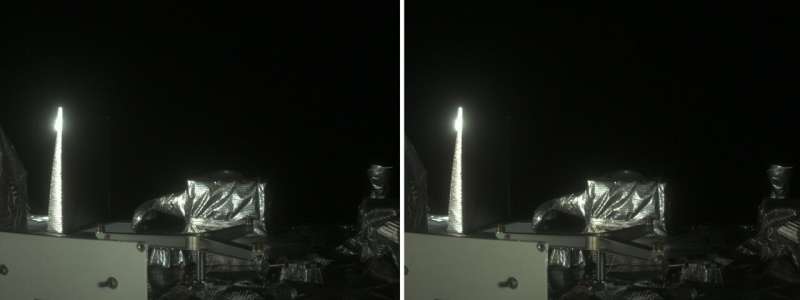
SpaceX launch marks 40th for the Space Coast
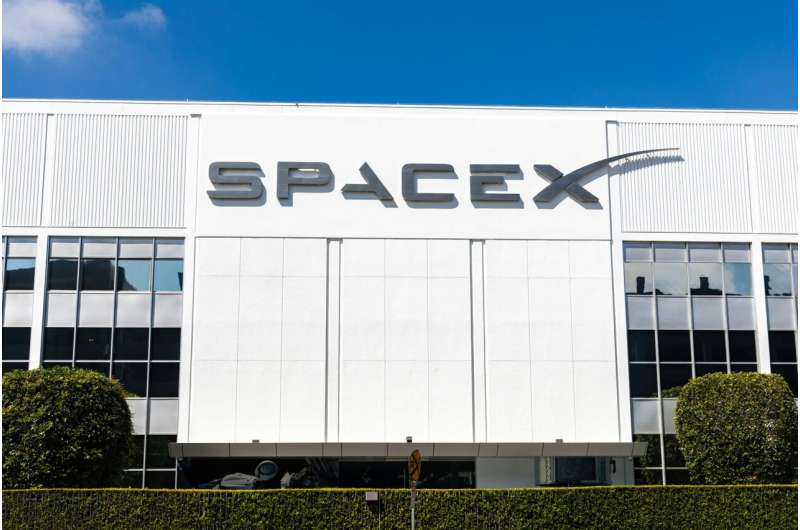
SpaceX sent up the 40th rocket launch from the Space Coast on Tuesday morning.
A Falcon 9 carrying 23 Starlink satellites lifted off at 10:24 a.m. from Cape Canaveral Space Force Station's Space Launch Complex 40. The launch was delayed from Monday, but SpaceX did not give a reason for why they stood down from that attempt.
The first-stage booster made its 10th flight with a bullseye recovery landing downrange on the droneship A Shortfall of Gravitas stationed in the Atlantic.
SpaceX has managed 38 of the 40 launches from either Canaveral or neighboring Kennedy Space Center this year, and plans are to turn around launch pads even quicker in the second half of the year so the Space Coast could top 100 launches for the 2024.
This was SpaceX's eighth launch from the Space Coast for May.
All of SpaceX's launches so far have been Falcon 9 launches, but the first Falcon Heavy launch of the year is slated to fly on June 25 carrying the GOES-U weather satellite for the National Oceanic and Atmospheric Administration.
United Launch Alliance flew the other two Space Coast launches with the first ever Vulcan Centaur launch in January and the final Delta IV Heavy launch in April.
Successful engine test boosts Vega-C towards return-to-flight
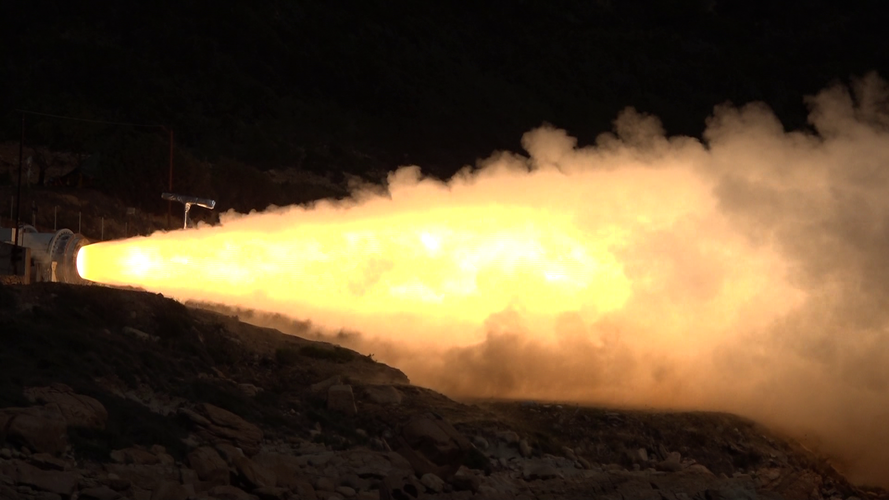
EarthCARE stands tall
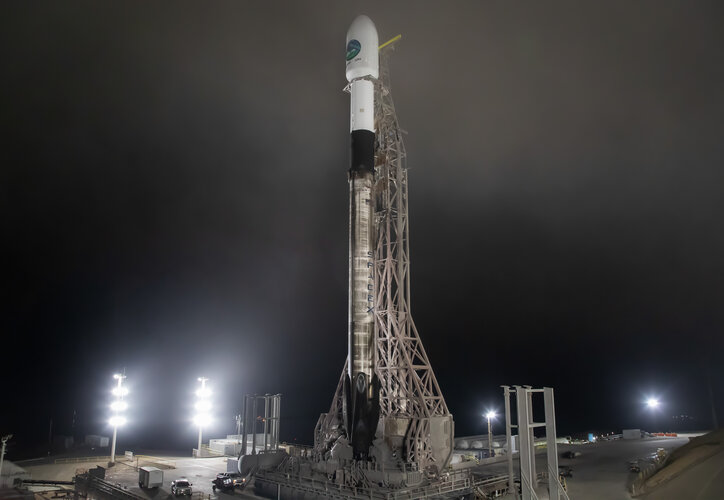 Image:
EarthCARE stands tall
Image:
EarthCARE stands tall Mystery of 'slow' solar wind unveiled by Solar Orbiter mission
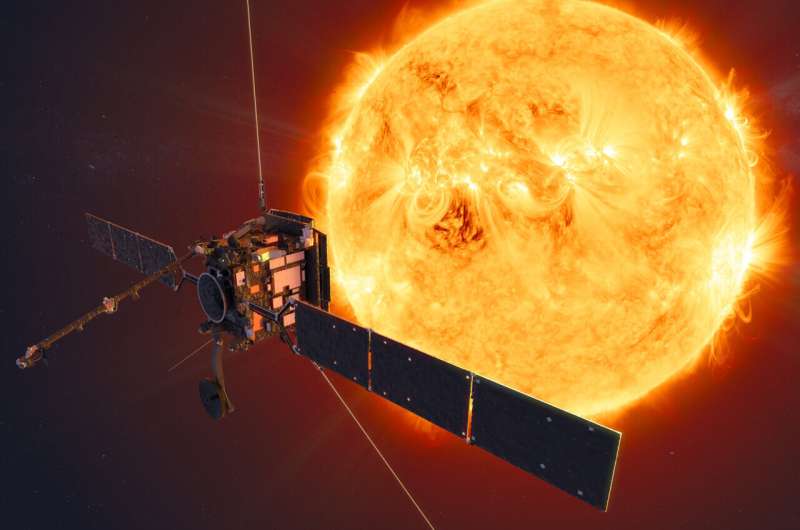
Scientists have come a step closer to identifying the mysterious origins of the "slow" solar wind, using data collected during the Solar Orbiter spacecraft's first close journey to the sun.
Solar wind, which can travel at hundreds of kilometers per second, has fascinated scientists for years, and new research published in Nature Astronomy, is finally shedding light on how it forms.
Solar wind describes the continuous outflow of charged plasma particles from the sun into space—with wind traveling at over 500km per second known as 'fast' and under 500km per second described as "slow."
When this wind hits the Earth's atmosphere it can result in the stunning aurora we know as the Northern Lights. But when larger quantities of plasma are released, in the form of a coronal mass ejection, it can also be hazardous, causing significant damage to satellites and communications systems.
Despite decades of observations, the sources and mechanisms that release, accelerate and transport solar wind plasma away from the sun and into our solar system are not well understood—particularly the slow solar wind.
Mission Control GO for EarthCARE launch
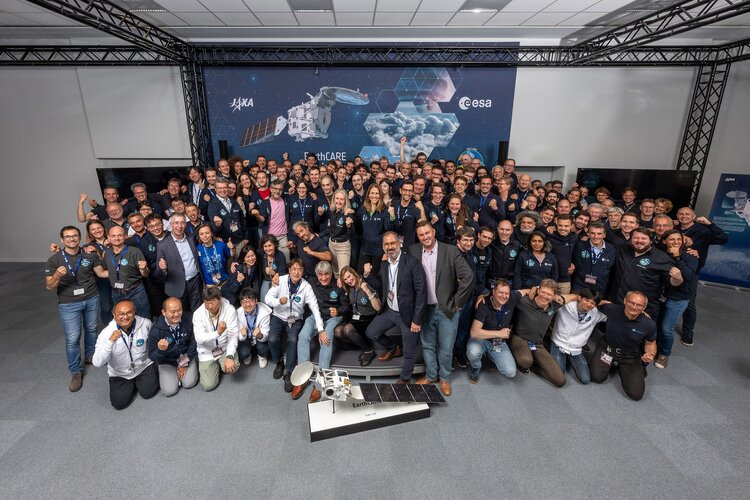 Image:
Mission Control GO for EarthCARE launch
Image:
Mission Control GO for EarthCARE launch ESA’s Solar Orbiter traces solar wind to its source
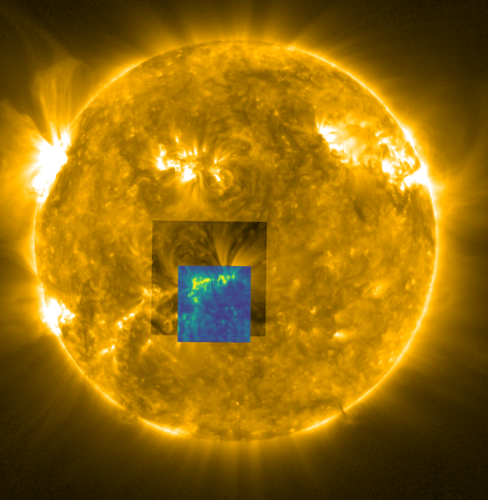
ESA’s Solar Orbiter made the first ever connection between measurements of the solar wind around a spacecraft to high-resolution images of the Sun’s surface at a close distance. The success opens a new way for solar physicists to study the source regions of the solar wind.
EarthCARE ready for launch
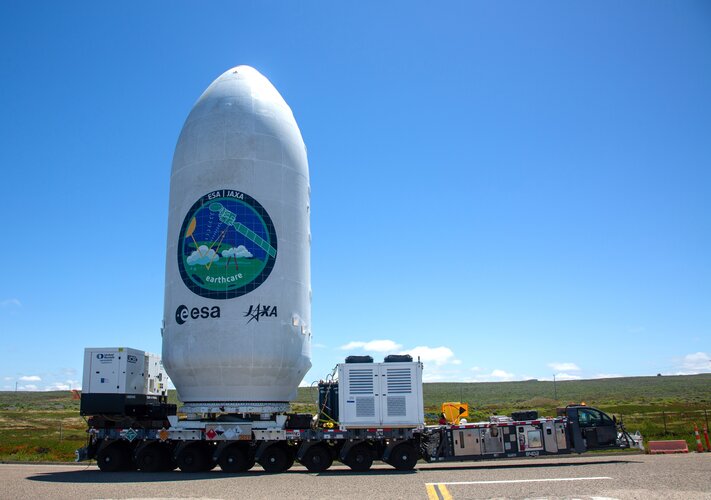
With liftoff now set for 29 May at 00:20 CEST (28 May, 15:20 local time), ESA’s EarthCARE satellite ready for launch at the Vandenberg Space Force Base in California. Once in orbit, this new satellite is set to revolutionise our understanding of how clouds and aerosols affect Earth’s climate.

